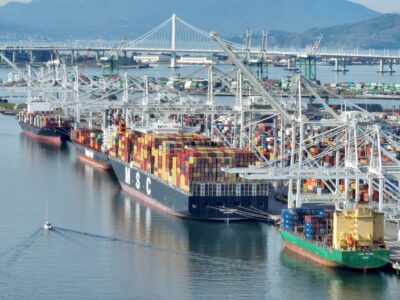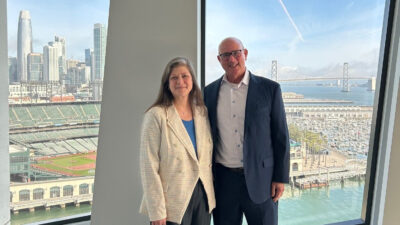Council Fights Cockamamie Work from Home Mandate
Think you’re tired now of Zoom meetings? Just wait until you get a load of a daft new scheme from the Metropolitan Transportation Commission (MTC) that by 2035 would require 60% of businesses with 25 or more employees to work from home permanently, even after the COVID shutdown lifts. The Bay Area Council has long partnered with MTC to improve our regional transportation system and we have great respect for the work this important organization does, but this idea immediately needs to be relegated to the scrap heap of bad ideas.
Not only does dictating to businesses where their employees can work represent gross regulatory and bureaucratic over-reach, it provides yet another unwelcome signal to businesses here and elsewhere that the Bay Area is not a good place to create jobs. Is that really what we should be doing during one of the worst economic downturns in generations? Such a policy would decimate local transit services and the many thousands of small, local service businesses in our urban job centers that rely on office workers for income. Among many other unintended consequences. The plan drew harsh scorn in a poll on Twitter, with 90% of 340 respondents giving it the thumb’s down.
The aim of this draconian proposal is to reduce greenhouse gas emissions (GHG) from automobiles. While we agree we need to reduce GHG emissions, there are far better ways to get there, such as new housing near transit- and jobs-rich areas, carpooling, transit expansion and more. Ironically, this policy surfaced before Gov. Newsom announced a bold plan to eliminate sales of gas-powered vehicles by 2035.
Here are the facts:
• Today, only 45% of Bay Area jobs are remote work eligible (whether those workers want to work remotely is another question)
• Remote work eligible jobs are much more likely to be filled by white, wealthy residents, and this policy would create a Bay Area where poor minorities would have to commute to work, but wealthier folks would work from home. Of those with income below $40,000, only 6% can work from home. Of those with income over $150,000, 76% can work from home.
• In San Francisco, 60% of public transit riders, are remote work eligible, and without those riders paying fares, the transit systems will collapse. (Similar proportions exist in Santa Clara county, and the rest of the Bay Area.)
• Without employees coming to downtowns, or corporate campuses of major employers, all of the small businesses that support those companies in the area and employees will likely fail.
• Non-remote eligible workers drive single occupant vehicles at much higher rates (76% of these workers drive in Santa Clara, for example), so this policy, aimed at reducing greenhouse gas emissions, actually punishes the populations that commute, carpool or bike the most.
The Bay Area Council submitted a strongly worded letter to the MTC declaring our opposition to this outrageous plan and we are forming a member task force to work on making sure it dies a quick death. The Council firmly believes we must reduce GHG emissions and has worked for decades across all of our policy areas to help achieve the state’s goals. But this is not the way to do it. To learn more, please contact Senior Vice President Gwen Litvak.





